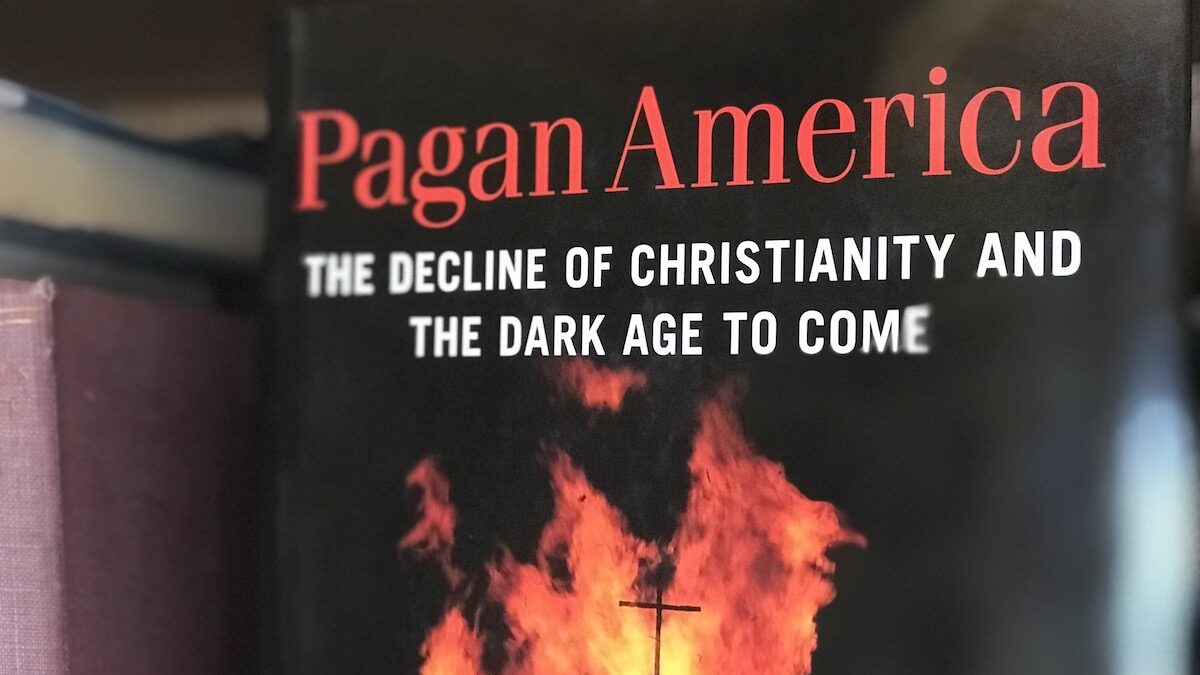
Two Michigan doctors and a spouse are being charged in the nation’s first federal criminal prosecution involving female genital mutilation (FGM), and the State Department wants to make sure we don’t get the wrong idea.
“When we think of female genital mutilation, we usually think of African cultures and non-Christian religions,” says A. Renee Bergstrom, a 72-year-old white woman, in a newly-released State Department video. “However, my FGM took place in white, Midwest America. FGMC (female genital mutilation/cutting) is global in scope. It cuts across race, religion, geography, and socio-economic class.”
The video was released on April 14, the day after authorities charged Michigan doctor, Jumana Nagarwala, with mutilating the genitals of two seven-year-old girls from Minnesota. The painful procedure, which involves cutting or removing all or part of the external female genitalia, was allegedly performed at a clinic in Livonia, Michigan. The owner of the clinic, Dr. Fakruddin Attar, has also been charged along with his wife, Farida Attar, who allegedly assisted in the procedure.
The news of FGM occurring on American soil has shocked many. But it also has revived debates about who or what is to blame for this barbaric practice.
Is Female Genital Mutilation Religiously Motivated?
The State Department was quick to dispel the notion that female genital mutilation has anything to do with Islam. Its newly-released video also features FGM survivor and social worker, Mariya Taher, who claims that to end to FGM, we “need to debunk myths surrounding the practice, such as the false understanding that religion promotes it.”
Yet all three defendants in the recent Michigan FGM case belong to the Dawoodi Bohra Islamic sect. The sect considers FGM mandatory to curb sexual promiscuity among its women. And Attorney Shannon Smith, who is representing Dr. Nagarwala, told reporters that the procedure is religious in nature, and that her client is “absolutely” being persecuted for her religion.
So which is it? Is FGM religiously motivated or not?
Some Christian Countries Practice FGM
According to UNICEF, seven of the top eight countries with very high rates of female circumcision (from 83 percent to 98 percent) are majority Muslim. Yet several years ago, when TV host Bill Maher claimed that FGM is an “Islamic problem,” Muslim apologist and religious scholar Reza Aslan strongly objected.
“It’s a central African problem,” Aslan said. “Eritrea has almost 90 percent female genital mutilation. It’s a Christian country. Ethiopia has 75 percent female genital mutilation. It’s a Christian country. Nowhere else in the Muslim, Muslim-majority states is female genital mutilation an issue.”
Similarly, Slate magazine recently published an article by Muslim physician Jalal Baig, claiming that “female genital mutilation is not a fundamentally Islamic practice.” Mimicking Aslan, Baig wrote, “Today, (FGM) is primarily a cultural problem in central Africa, with Muslim-majority countries such as Egypt and Somalia on the list alongside Christian-majority ones such as Ethiopia and Eritrea.” Baig also claimed that the practice is uncommon in some of the largest Muslim communities in Asia and the Middle East.
Aslan and Baig are mostly right about Eritrea and Ethiopia. Eighty-three percent of women in Eritrea have been subjected to FGM. But according to the U.S. State Department, Christians just barely outnumber Muslims in Eritrea, 50-percent to 48-percent. Ethiopia, however, is decidedly more Christian than Muslim, 63 percent to 35 percent. And as Aslan claimed, the percent of FGM there is about 75 percent.
So clearly FGM is not an exclusively Muslim problem. But that does not mean it is not primarily a Muslim problem.
There’s A High Correlation Between FGM And Islam
What Aslan, Baig, and the State Department do is negate the strong correlation between Islam and FGM on the basis of a few outliers. One case of a white women subjected to FGM in a Midwestern U.S. town nearly 70 years ago means nothing. Similarly, the high prevalence of FGM in Ethiopia and Eritrea does not negate the relationship between Islam and FGM in those countries and elsewhere.
To truly determine whether FGM is a Muslim problem or not requires careful statistical analysis. Dr. Oliver Scott Curry, a senior researcher at the Institute of Cognitive and Evolutionary Anthropology at the University of Oxford, has conducted this analysis using data from the World Health Organization, the Pew Research Center, and Wikipedia.
Dr. Curry found that there is a “large significant positive correlation between the percentage of women subject to FGM and the prevalence of Islam.” Interestingly though, there is an almost equal negative correlation between the percentage of women subject to FGM and the prevalence of Christianity.
Dr. Curry reported his findings using something called the “Spearman’s rank correlation coefficient” (rs), which measures the statistical dependence between the ranking of two variables. He found that Spearman’s correlation between FGM and Islam was rs = .54 (p=.003). This means that we can be very confident (due to the low “p” value) that countries that rank high in their prevalence of Islam will rank fairly high in their prevalence of FGM.
However, Dr. Curry found that the correlation between Christianity and FGM was actually negative: rs = -.48 (p=.01). This means that we can be confident (due the slightly higher “p” value) that countries that rank high in their prevalence of Christianity will tend to rank low in their prevalence of FGM.
We Don’t Know FGM’s Prevalence Worldwide
Dr. Curry’s findings mean that Aslan, Baig, and the State Department are wrong. There is a “factual, empirical” relationship between Islam and FGM. And despite Renee Bergstrom’s suggestion in the State Department video, FGM is not an issue associated with Christianity.
Additionally, as Dr. Curry noted, the assertion that FGM does not exist in Muslim countries outside Africa is also wrong. “(T)here is no reliable data on FGM outside Africa,” Curry wrote, and “Absence of evidence is not evidence of absence.”
There exist, however, numerous indications that FGM exists in Muslim-majority nations in other parts of the world, though we don’t know for sure to what extent. For example, a 2010 study conducted in a Saudi Arabian hospital noted that there was a high prevalence of post-FGM medical complications among women there. As a result, the study concluded that the practice of FGM is widespread in this almost exclusively Muslim nation.
Similarly, a 2010 WADI report found that the FGM rate in Iraqi Kurdistan is 72 percent and exceeds 80 percent in the districts of Garmyan/New Kirkuk. The report noted that FGM was most common among Sunni Muslims, but was also practiced by Shiites. Christians and Yezidi, on the other hand, were not found to engage in FGM.
Sometimes The Truth Is Politically Incorrect
So the politically incorrect truth is that FGM is an Islamic problem. And contrary to the State Department’s assertions, eradicating this practice will mean facing this fact, rather than misrepresenting the facts to fit our sanitized version of reality.
“In Muslim communities there is the demand that women, girls, should be virgins and a woman’s sexuality is to be controlled and (FGM) is an effective and brutal way of doing that,” said Ayaan Hirsi-Ali, a Somali-born American citizen and activist who was subjected genital mutilation as a child. Ali heads the AHA Foundation, a group dedicated to protecting women and girls from FGM. According to the foundation, some 500,000 women and young girls in the U.S. have suffered genital mutilation or are at risk of being mutilated.
Sadly, the politics surrounding FGM has resulted in deafening silence on this issue, especially from the left and feminists who should be outraged. FGM became illegal in the U.S. under a federal law in 1996, but 26 states still do not have laws criminalizing FGM.
“The left can easily and comfortably condemn the misogyny of white men, but not of men of color, not of Muslims,” Ali said. “They are afraid of being shunned. They’re afraid of being put into a basket of deplorables. So they’re silent.”
We Need To End The Silence to Protect Women and Girls
This silence needs to end, and so does the misinformation.
Ali says Islam needs a reformation, and certainly the prevalence of FGM in Muslim communities is a strong indication of that. Muslims who are appalled by this practice need to confront their communities, as Ali is doing, not continue to hide what is happening. Additionally, whoever is responsible at the State Department for producing the recent misleading video needs to be fired and replaced by someone who cares more about protecting innocent girls than protecting Islam’s image.
Americans of every ethnic and religious background need to express outrage about mutilating little girls. Collectively, we need to send a message to Dr. Nagarwala’s attorney, and all who are listening, that Dr. Nagarwala and her accomplices are not victims of religious persecution. Instead, they are religiously-motivated persecutors of little girls—and we will not tolerate it.









